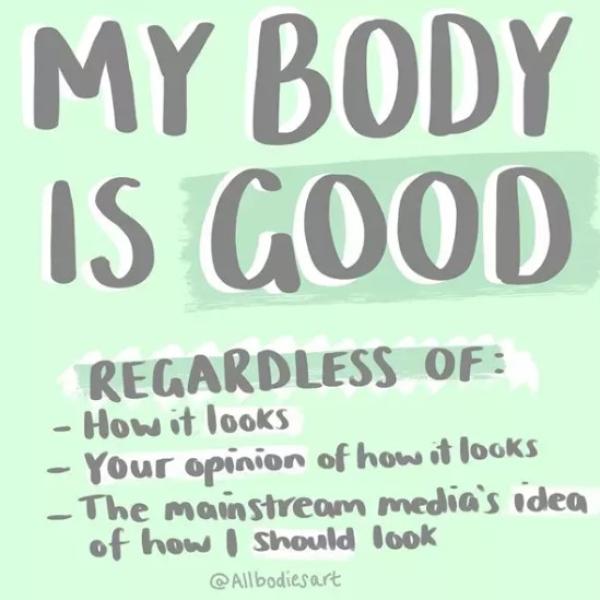Body Image 11+
When we talk about body image, there are lots of ways we can think about our body and the way we look. Your child might find that there are times when they like their body or parts of their body and times when they struggle with how they look.
Body image
I’m far too tall, my nose is bumpy, my hair is too curly... how many times do you hear this, or even how many times have you said or thought this yourself? As you grow up, your body is going through lots of changes. Everyone has things about themselves that they don’t like – even celebrities! It’s important to learn to accept yourself for who you are. This isn’t always easy, especially when we feel under pressure from friends and family or television and magazines to look a certain way. “I don’t like the way I look… I wish I was better looking!”
What is body image?
Body image describes how you feel about your own physical appearance – the way you look. If you have a positive body image you will feel comfortable about your own body. If you have a negative body image, you probably won’t feel very confident about your body. This usually goes hand in hand with low self-esteem – you may not feel very confident about other things, like your ability to do well at something.

Why have I got a negative body image?
If you have a negative body image, this will probably be a result of low self-esteem. This may be a result of the changes that your body is going through if you have reached puberty. It may also be because of peer pressure - if other people your age, such as school friends have told you something negative about the way you look, you may believe what they have said and be upset by this. “When my friends tell me my clothes are not in fashion, I feel upset and like I don’t fit in.” A negative body image can also be a result of comparing yourself to the people you see in the media. You may feel that you should look like a celebrity that has been on television or in a magazine. Comparing yourself to others is the quickest way to unhappiness.
Top Tips to improve the way you feel about body image
Tip 1: Accept yourself Learn to accept yourself for who you are.
Tip 2: Identify changes Everyone has things they would like to change about themselves – identify what you can realistically change (for example, you can’t change your height or your shoe size but you can change how fit you would like to be).
Tip 3: Set goals Set yourself some small goals of how you are going to achieve these changes. These goals should be realistic and achievable.
Tip 4: Give yourself compliments Try to give yourself 3 compliments every day or find 3 things you feel you have done well – write these down and look back at them every day. By looking at the positives in your life you will be able to raise your self-esteem. “What’s inside is more important than what you look like.”
Tip 5: Don’t compare yourself to people you see in magazines, online or on social media. Remember all these images can be easily manipulated or enhanced. Valuing what is unique about ourselves is better than comparing ourselves to heavily manipulated media images.
Tip 6: What can I do if I need further help? If you feel you have problems with managing your feelings about your body image, if it is impacting your everyday activities and stopping you from making the most out of life then you should tell someone you trust – this could be a family member, a teacher or a trusted adult. They will listen to you and help seek the appropriate support that you need.
Useful websites
Childline has some useful guidance and resources for your young person to take a look at. It covers how young people look, the importance of staying healthy and sport and exercise.
Young Minds has resources to help young people cope with the pressures around body image.
